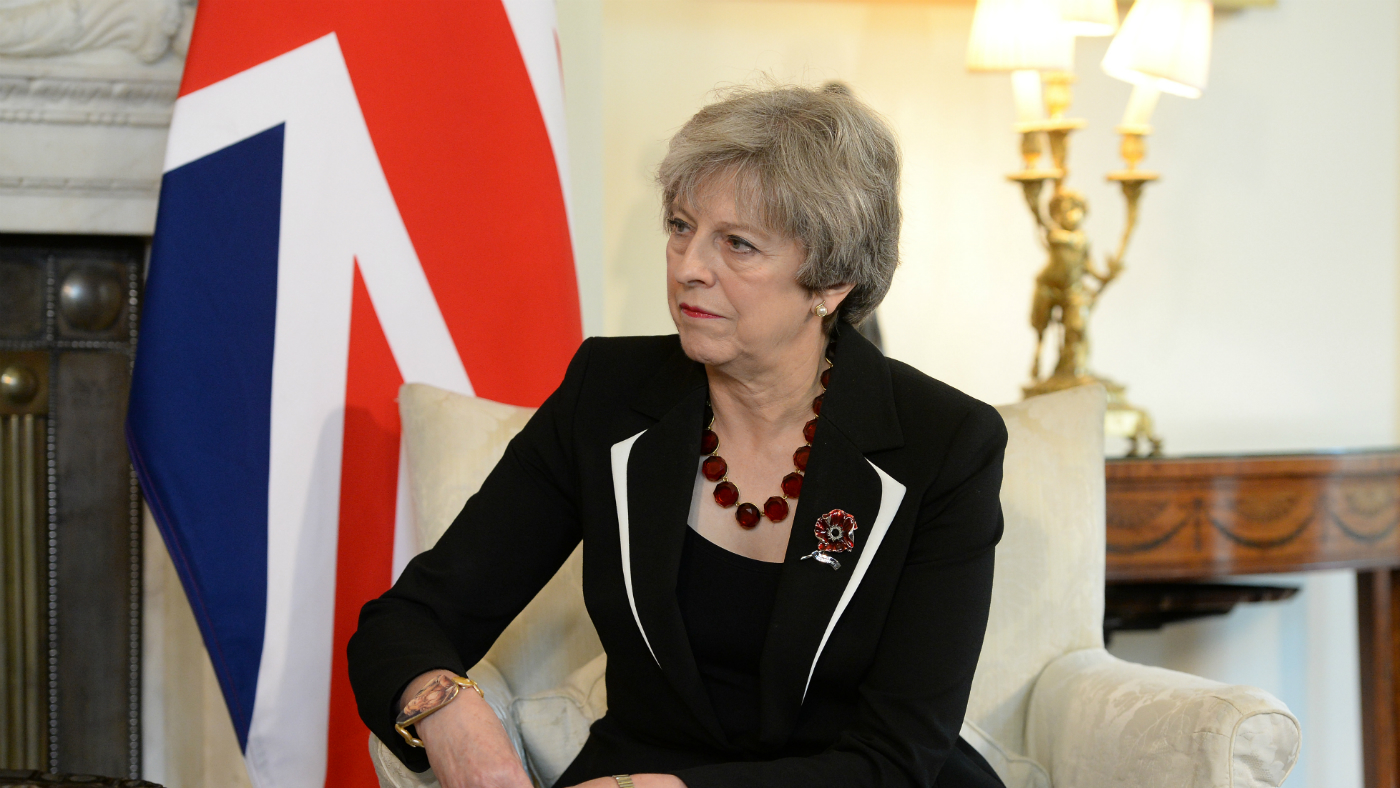Theresa May to raise Yemen concerns during Saudi trip
But criticism over British arms deals with Saudi Arabia overshadow PM’s visit

A free daily email with the biggest news stories of the day – and the best features from TheWeek.com
You are now subscribed
Your newsletter sign-up was successful
Prime Minister Theresa May is expected to raise concerns about the Saudi Arabia-led war in Yemen during her visit to the Middle East, amid criticism back home about Britain’s lucrative arms trade in the region.
Andrew Mitchell, the Conservative former international development secretary, said last week that the UK was “dangerously complicit” in a Saudi policy that was “directly promoting a famine and the collective punishment of an entire population”.
Since early 2015, Saudi Arabia has been leading a military intervention against the Houthi insurgency in Yemen and has been accused of numerous human rights abuses, including targeting civilians.
The Week
Escape your echo chamber. Get the facts behind the news, plus analysis from multiple perspectives.

Sign up for The Week's Free Newsletters
From our morning news briefing to a weekly Good News Newsletter, get the best of The Week delivered directly to your inbox.
From our morning news briefing to a weekly Good News Newsletter, get the best of The Week delivered directly to your inbox.
“We’re very concerned about the humanitarian situation in the Yemen,” May said before the trip. “The United Kingdom is now, I think, the third-biggest bilateral donor of humanitarian aid to Yemen.”
But according to The Independent, “the UK has made ten times more in arms sales to Saudi Arabia than it’s given in aid to Yemen”.
Amnesty International claims that the US, UK, France, Spain, Canada and Turkey sold a total of about £4.44bn worth of arms to Saudi Arabia between 2015 and 2016. In 2015, the UK government approved global arms licences totalling more than £7.7bn, reports the BBC, and most of those weapons were sent to the Middle East, with Saudi Arabia by far the UK’s most valuable client.
May’s trip is an attempt to bolster links with the region post-Brexit, says Sky News.
A free daily email with the biggest news stories of the day – and the best features from TheWeek.com
The PM has said that it is in the UK’s interest to work with Jordan and Saudi Arabia, and has praised the latter for “changes taking place in Saudi Arabia, for example women being allowed to drive”.
-
 6 of the world’s most accessible destinations
6 of the world’s most accessible destinationsThe Week Recommends Experience all of Berlin, Singapore and Sydney
-
 How the FCC’s ‘equal time’ rule works
How the FCC’s ‘equal time’ rule worksIn the Spotlight The law is at the heart of the Colbert-CBS conflict
-
 What is the endgame in the DHS shutdown?
What is the endgame in the DHS shutdown?Today’s Big Question Democrats want to rein in ICE’s immigration crackdown
-
 Epstein files topple law CEO, roil UK government
Epstein files topple law CEO, roil UK governmentSpeed Read Peter Mandelson, Britain’s former ambassador to the US, is caught up in the scandal
-
 Iran and US prepare to meet after skirmishes
Iran and US prepare to meet after skirmishesSpeed Read The incident comes amid heightened tensions in the Middle East
-
 Israel retrieves final hostage’s body from Gaza
Israel retrieves final hostage’s body from GazaSpeed Read The 24-year-old police officer was killed during the initial Hamas attack
-
 China’s Xi targets top general in growing purge
China’s Xi targets top general in growing purgeSpeed Read Zhang Youxia is being investigated over ‘grave violations’ of the law
-
 Panama and Canada are negotiating over a crucial copper mine
Panama and Canada are negotiating over a crucial copper mineIn the Spotlight Panama is set to make a final decision on the mine this summer
-
 Why Greenland’s natural resources are nearly impossible to mine
Why Greenland’s natural resources are nearly impossible to mineThe Explainer The country’s natural landscape makes the task extremely difficult
-
 Iran cuts internet as protests escalate
Iran cuts internet as protests escalateSpeed Reada Government buildings across the country have been set on fire
-
 US nabs ‘shadow’ tanker claimed by Russia
US nabs ‘shadow’ tanker claimed by RussiaSpeed Read The ship was one of two vessels seized by the US military